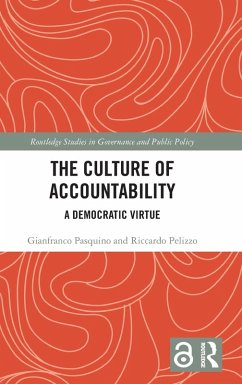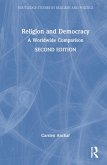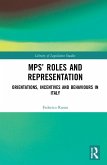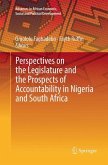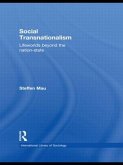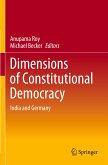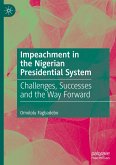This important book explores the cultural conditions that favour political accountability. It examines the channels through which accountability can be secured and the role that accountability plays in ensuring good governance. In addition to problematizing the notion of accountability, the book suggests that it is the product of three different-albeit, related-processes: taking account of voters' preferences, keeping account of voters' preferences, and giving account of one's performance in office. It further explores the relationship between accountability and political culture by analyzing the relationship between accountability and religion, religious denomination, familism, civicness, secularism and postmaterialism, revealing that the level of accountability is influenced by the diffusion of post-material values and by the level of civicness in a given country. This book will be of key interest to scholars, students, and practitioners in governance, the political economy of institutions and development, democracy, and more broadly to political science, international relations, political theory, comparative politics, sociology, and cultural studies. Chapter 1 of this book is available for free in PDF format as Open Access from the individual product page at www.routledge.com. It has been made available under a Creative Commons Attribution- Non Commercial-No Derivatives 4.0 license.
Hinweis: Dieser Artikel kann nur an eine deutsche Lieferadresse ausgeliefert werden.
Hinweis: Dieser Artikel kann nur an eine deutsche Lieferadresse ausgeliefert werden.
"Accountability is a central topic in democratic theory. This important book provides a compact, conceptually clear analysis of that topic, combining remarkable empirical comprehensiveness with significant theoretical innovation. Most important, the authors integrate institutional and cultural interpretations of accountability. This treatise is a valuable overview of the broad topic of accountability for both seasoned scholars and students at an introductory level."
Robert D. Putnam, Professor of Government, Harvard University, USA. Author of Bowling Alone: The Collapse and Revival of American Community.
"Accountability is central to democracy. Yet, until now, it has not been particularly theorized. This remarkable book admirably goes deeper than simply discussing free and fair elections. It takes democracy as a process, explaining how politicians consider voters' demands, attempt to maintain voters' preferences, and explain (or try to explain) what they are trying to achieve. In so doing The Culture of Accountability delves into a huge variety of cultural factors that impinge and affect politics. A must for anyone really interested in democracy and its problems."
Donald Sassoon, Emeritus Professor of Comparative European History, Queen Mary, University of London, UK. Author of The Anxious Triumph: A Global History of Capitalism, 1860-1914.
"Reading this work highlights the centrality of accountability to our democratic process. Indeed, it is probably the most important - and sadly the most understudied - democratic concept. Pasquino and Pelizzo are to be commended for their rich, refreshing and original insights into this most complex phenomenon."
Martin Bull, Professor of Politics and Associate Dean for Research & Innovation at the University of Salford, UK.
"A long-awaited powerful tool, grounded in sound research, to grasp the inner and outer meanings of a still foggy and largely undertheorized concept. Is it just a political ideal or a governmental practice? Is it linked with culture or with institutions? Is it really a "democratic virtue" and why it is disregarded in certain political contexts? In this book there is (almost) "everything you always wanted to know about" - accountability! A must-read for scholars, politicians and pundits."
Gianpietro Mazzoleni, University of Milan, Italy, and Editor of the International Encyclopedia of Political Communication.
Robert D. Putnam, Professor of Government, Harvard University, USA. Author of Bowling Alone: The Collapse and Revival of American Community.
"Accountability is central to democracy. Yet, until now, it has not been particularly theorized. This remarkable book admirably goes deeper than simply discussing free and fair elections. It takes democracy as a process, explaining how politicians consider voters' demands, attempt to maintain voters' preferences, and explain (or try to explain) what they are trying to achieve. In so doing The Culture of Accountability delves into a huge variety of cultural factors that impinge and affect politics. A must for anyone really interested in democracy and its problems."
Donald Sassoon, Emeritus Professor of Comparative European History, Queen Mary, University of London, UK. Author of The Anxious Triumph: A Global History of Capitalism, 1860-1914.
"Reading this work highlights the centrality of accountability to our democratic process. Indeed, it is probably the most important - and sadly the most understudied - democratic concept. Pasquino and Pelizzo are to be commended for their rich, refreshing and original insights into this most complex phenomenon."
Martin Bull, Professor of Politics and Associate Dean for Research & Innovation at the University of Salford, UK.
"A long-awaited powerful tool, grounded in sound research, to grasp the inner and outer meanings of a still foggy and largely undertheorized concept. Is it just a political ideal or a governmental practice? Is it linked with culture or with institutions? Is it really a "democratic virtue" and why it is disregarded in certain political contexts? In this book there is (almost) "everything you always wanted to know about" - accountability! A must-read for scholars, politicians and pundits."
Gianpietro Mazzoleni, University of Milan, Italy, and Editor of the International Encyclopedia of Political Communication.

